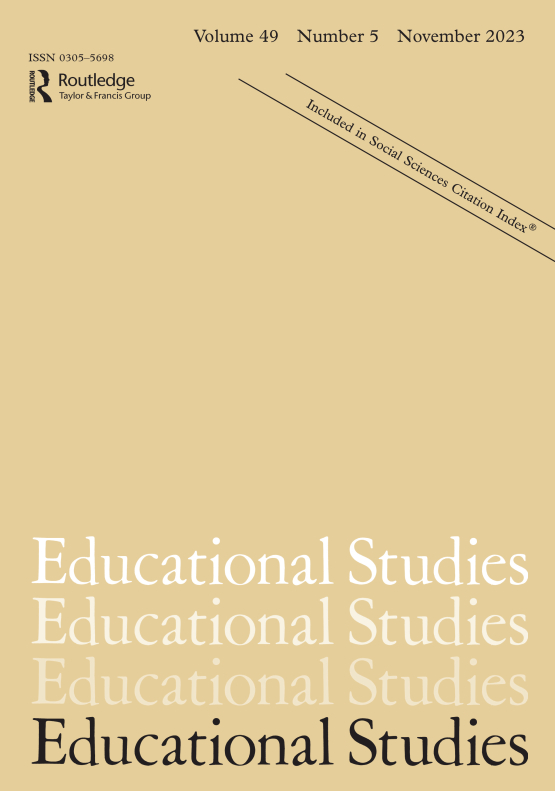Submit a Manuscript to the Journal
Educational Studies
For a Special Issue on
XR in education: Multidisciplinary insights for supporting learners with additional needs and disabilities
Manuscript deadline

Special Issue Editor(s)
Lucy Baohua Yu ,
City University of Hong Kong
baohuayu@cityu.edu.hk
Junjie Gavin Wu ,
Macao Polytechnic University
gavinjunjiewu@gmail.com
David Brown,
Nottingham Trent University
david.brown@ntu.ac.uk
Stylianos Mystakidis,
University of Patras
stylianosm@gmail.com
XR in education: Multidisciplinary insights for supporting learners with additional needs and disabilities
Special education and educational technology have been vital yet underexplored areas over the past few decades. As the educational landscape evolves, integrating technology into learning environments tailored for students with special needs has become increasingly important. Despite this, there is still a notable lack of research and case studies addressing the intersection of these fields, particularly in relation to new technologies such as extended reality (XR).
This special issue aims to bridge this gap by welcoming submissions focused on the use of XR technologies—encompassing virtual reality (VR), augmented reality (AR), and mixed reality (MR)—in empowering learners with special needs. XR technologies offer unique opportunities to create immersive and engaging learning experiences tailored to diverse learning styles and challenges. By leveraging these technologies, educators can develop innovative solutions that enhance accessibility and promote active participation and engagement among students with varying abilities.
We invite contributions from researchers, educators, practitioners, and stakeholders from all disciplines, combining conceptual frameworks and empirical research to facilitate a multidisciplinary dialogue. We seek insights that explore how XR technologies can address specific learning challenges faced by individuals with special needs, such as autism spectrum disorders, learning disabilities, and physical impairments. Thought-provoking case studies demonstrating successful implementations of XR in educational settings are particularly encouraged.
The call for papers aims to solicit well-written and sound research in the following areas, topics include but not limited to:
• Innovative case studies that showcase the effectiveness of XR experiences in improving learning outcomes for students with diverse disabilities.
• Collaborative research endeavors involving educators, technologists, and clinical professionals in the creation of XR tools tailored for learners with special needs.
• Cross-cultural adaptations of XR technologies to cater to the needs of special needs learners from diverse backgrounds.
• The role of artificial intelligence in enriching XR learning experiences for learners with special needs.
• Policies and ethical considerations surrounding the implementation of XR in special education, including privacy concerns and issues of equity.
• Conceptual analyses exploring the emerging trends and future directions for XR technologies in the research and practice of special education.
• Learning theories and XR technologies in shaping the emerging trends and future directions for XR in special education research and practice.
• Professional development programmes to integrate XR into special education practices.
Submission Instructions
Manuscript Submission Due Date: March 31, 2026
1st round Review Notification: June 30, 2026
1st round Revision Submission Due Date: July 31, 2026
2nd round Review Notification: August 31, 2026
2nd round Revision Submission Due Date: October 15, 2026
Final Acceptance Notification: November 15, 2026
Final Camera-ready Manuscript Due Date: November 30, 2026
Editorial Preface Submission: December 15, 2026

